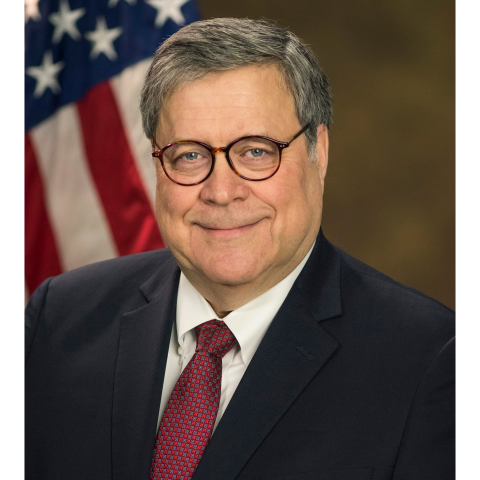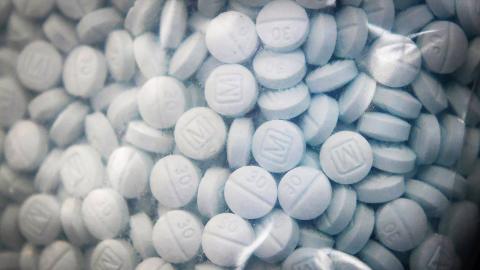Counterfeit drugs continue to threaten the lives and health of millions of Americans. Two years ago, the DEA warned that Mexican cartels are mass-producing fake pills using chemicals procured from China, marketing them as legitimate prescription pills, and killing many thousands of unsuspecting Americans.
Made to look like legitimate prescription drugs, such as Percocet, Xanax or Adderall, and readily available over social media and the internet, these fake pills are frequently laced with potentially fatal doses of fentanyl. So far this year the DEA has seized 69 million fentanyl-laced pills – over three times the number seized two years ago.
Drug overdose deaths continue to climb, standing at 109,000 last year – with 70% of the deaths attributable to fentanyl. The same sad, familiar story is repeated hundreds of times a day in local news around the country: a college student unwittingly takes a phony Xanax pill and never wakes up; a high schooler takes what looks like an Adderall and falls into a coma; and on and on it goes.
These pills from Mexico are an acute aspect of the broader challenge posed generally by counterfeit drugs. On a massive scale around the world, fraudsters and criminal organizations are counterfeiting a wide array of prescriptions medicines, running the gamut from common painkillers, antibiotics and antimalarial and antiretroviral drugs up to the most sophisticated cancer treatments.
Sourced from shady companies in countries like China and India, these fake drugs have become big business globally – estimated to be worth $200 billion a year. According to the World Health Organization, counterfeit drugs account for roughly 10% of medical products circulating in low- and middle-income countries.
These counterfeit drugs pose grave risks to life and health. They are frequently adulterated with dangerous and potentially lethal ingredients like lead, mercury, toxins or harmful chemicals. But, even when they are not contaminated, they often lack the required active ingredients and are ineffective.
In 2021, for example, in Texas, the owner of an Eastern European company was sentenced for smuggling and selling to patients in the U.S. cancer and hepatitis drugs with no active ingredients. That same year, two American doctors pled guilty for their part in distributing counterfeit cancer drugs lacking effective ingredients they had purchased from a Canadian online pharmacy. The pharmacy was charged with selling into the U.S. $78 million worth of unapproved, mislabeled or counterfeit cancer drugs.
Fortunately, it is exceptionally rare in the U.S. for counterfeit drugs to infiltrate licensed pharmacies because we have a "closed system" of drug distribution supervised by the U.S. Food and Drug Administration (FDA). This requires drugs destined for use in the U.S. to be manufactured – whether at home or abroad – in plants inspected by the FDA and according to FDA standards, and further requires a national track-and-trace system that follows drugs from manufacture to the pharmacy shelf.
But just like the cyber world, our drug distribution network is constantly being probed by criminal organizations. According to data from the Pharmaceutical Security Institute, over the past decade, global counterfeit drug seizures more than tripled with the greatest number of incidents recorded in North America.
Just two months ago, for example, a Florida man pleaded guilty to using falsified documentation to sell at least $16.7 million of adulterated HIV drugs to wholesale drug suppliers from which they were dispensed to unsuspecting patients throughout the country. Vigorous enforcement is essential to protect the integrity of our drug distribution network.
However, counterfeit drugs are a growing danger in the U.S. because more Americans are circumventing our closed system by procuring drugs outside authorized channels.
Unsafe counterfeit drugs are being peddled via tens of thousands of rogue online pharmacies, e-commerce and social media platforms, messaging apps, and the dark web. It is estimated that 36 million Americans have bought drugs online without a valid prescription.
The touting of Canada as an alternative source of cheaper drugs has conditioned many Americans to think that online pharmacies claiming to be "Canadian" are a safe source of drugs. But studies have found most have no connection with Canada and many are fronts for Eastern European organized crime networks that obtain their drugs from China, India, Turkey, Pakistan and Russia.
Few industries are as critical to our nation’s well-being as our pharmaceutical and biotech sector. Long the most dynamic and innovative in the world, our drug industry plays a major role in our economy – employing nearly one million workers, including essential manufacturing jobs; supporting more than 3.5 million additional jobs; funding critical research and development; and generating more than $1.4 trillion of economic output.
Yet COVID exposed how, over the past 20 years, our drug manufacturing has movedoverseas, especially to China, and our supply chain has become vulnerable to being cut off in the event of pandemic, war or political tensions.
The time has come to strengthen our nation’s drug industry. As part of this, we must step up efforts to protect the integrity of our drug distribution system. We spend ample amounts to keep harmful agents out of our general environment, and we must not scrimp when it comes to keeping harmful agents out of our pharmacies.
We also need greater public education and enforcement efforts to stop consumers from circumventing regular distribution channels. We must be cautious about proposals to lower prices by relaxing our closed system to allow for more importation of drugs from foreign countries. These steps could undermine efforts to strengthen our own drug industry and make it far more difficult to ensure the safety of our drug supply.
The scourge of counterfeit drugs is becoming a national crisis. It’s time we start treating it that way.

















